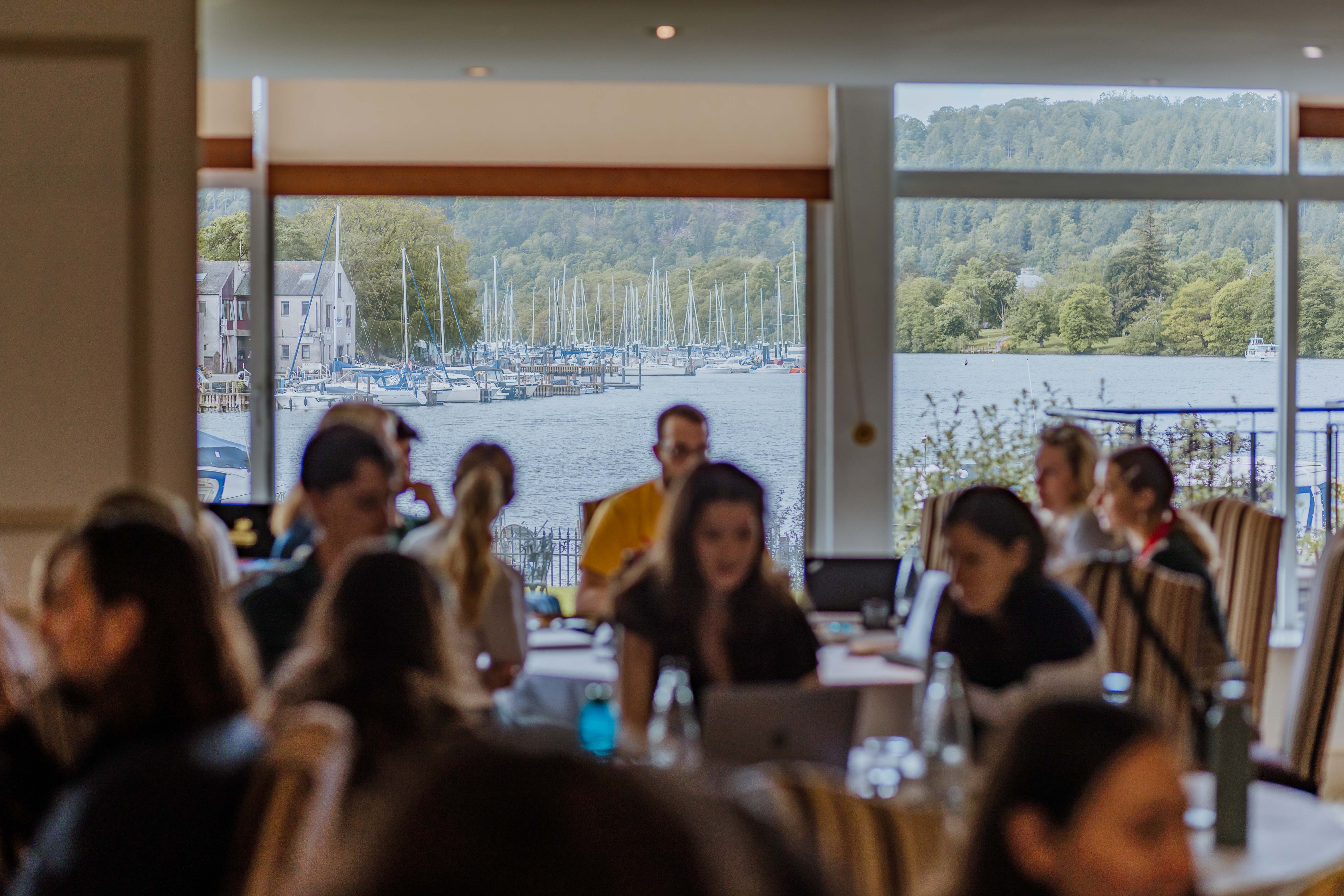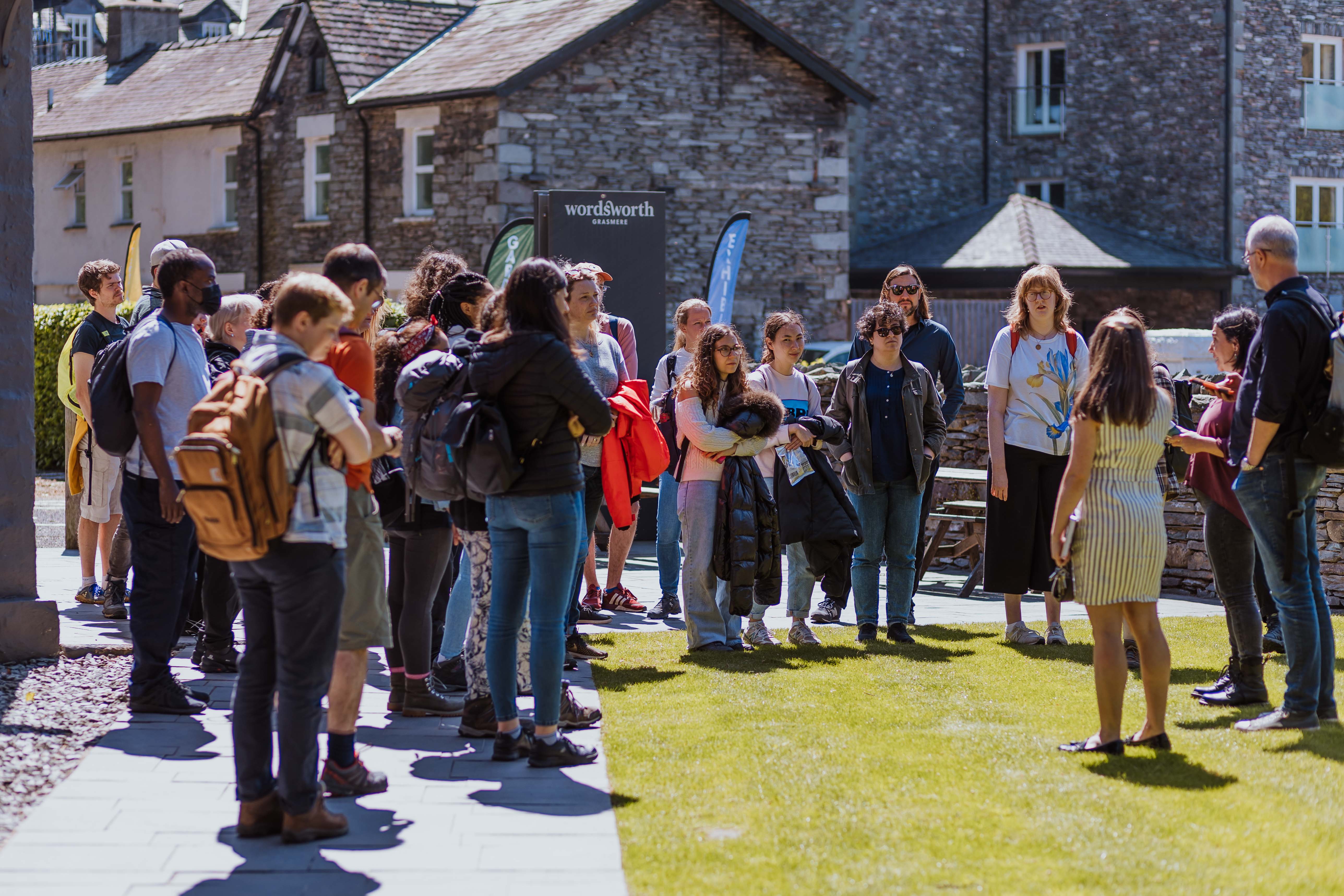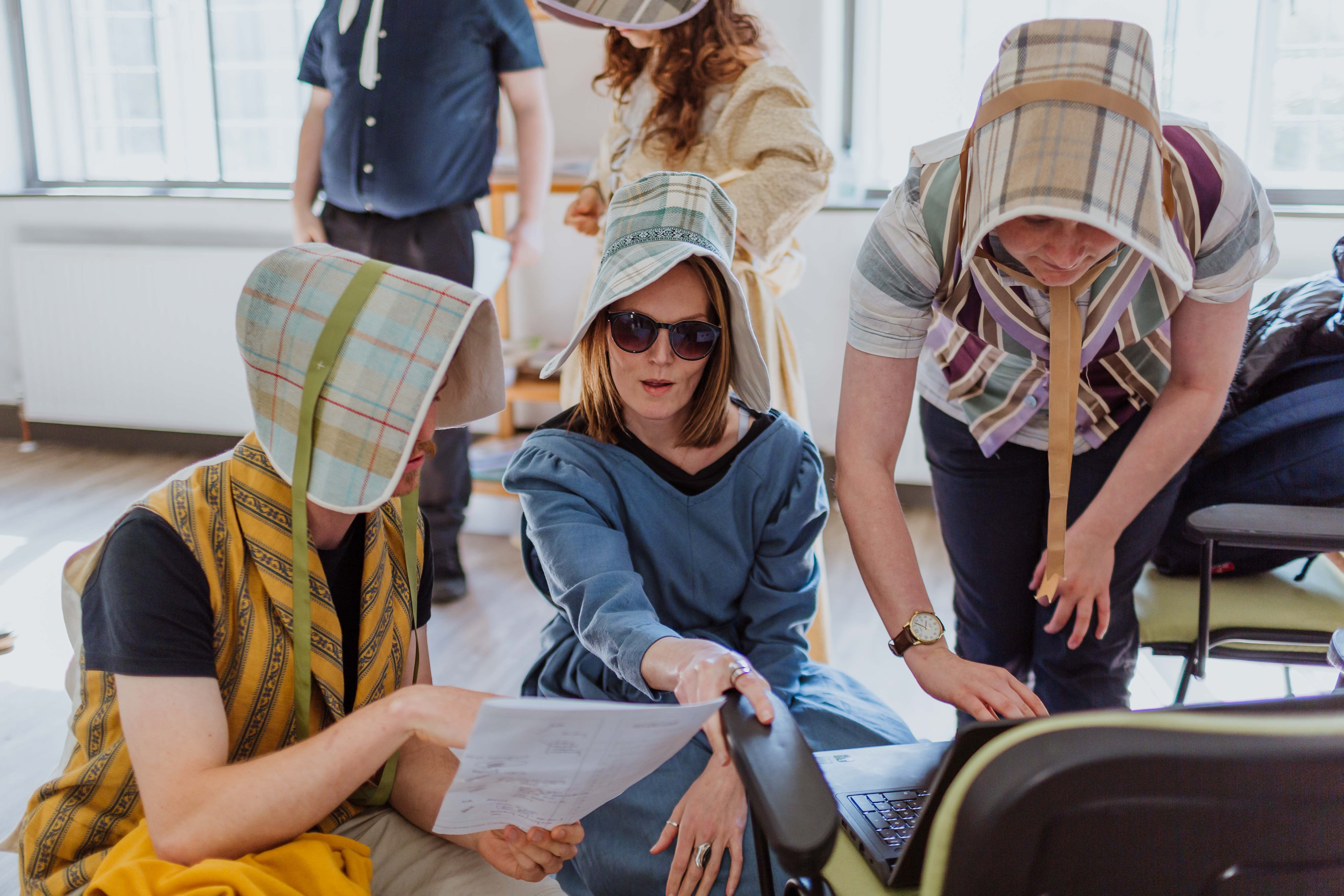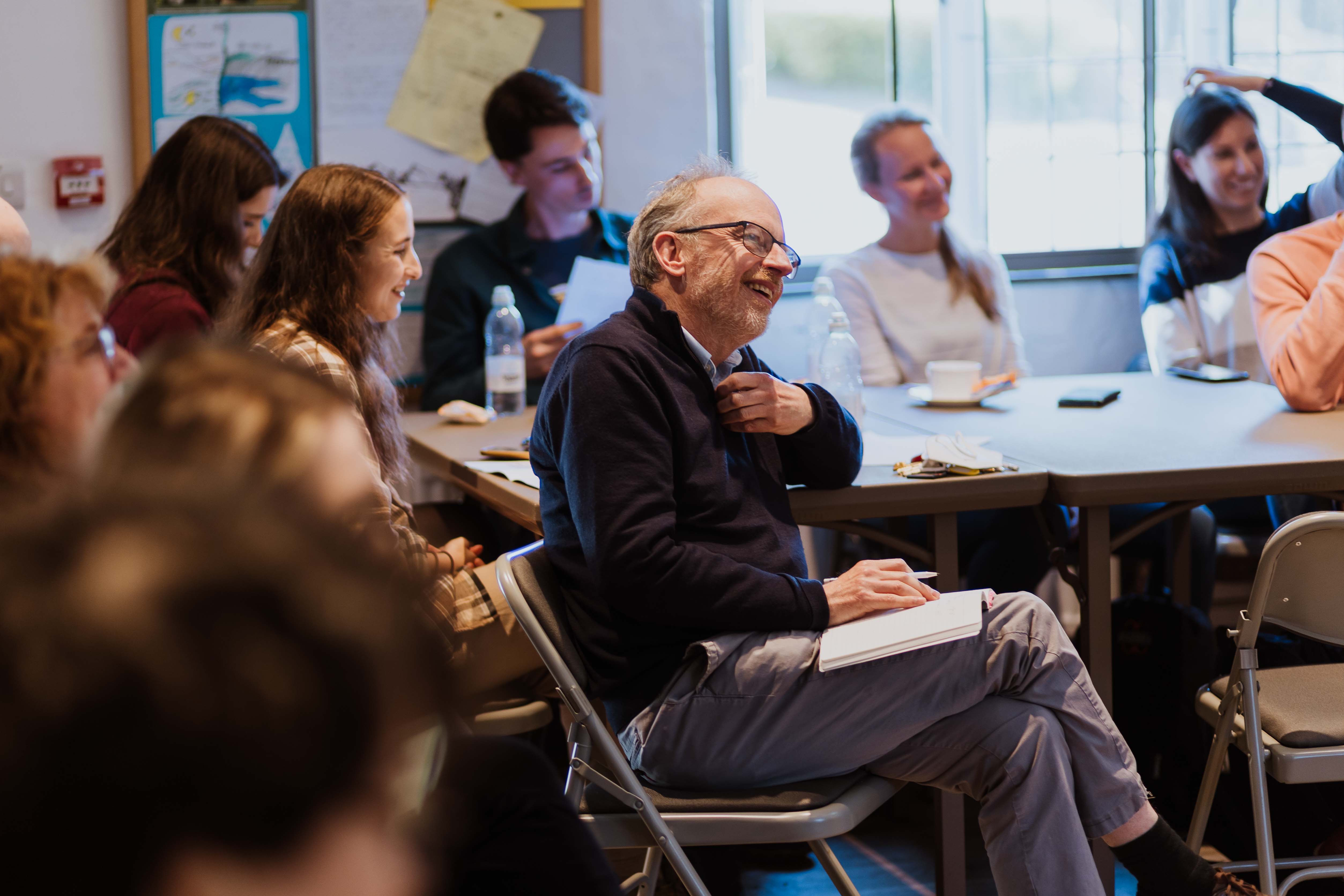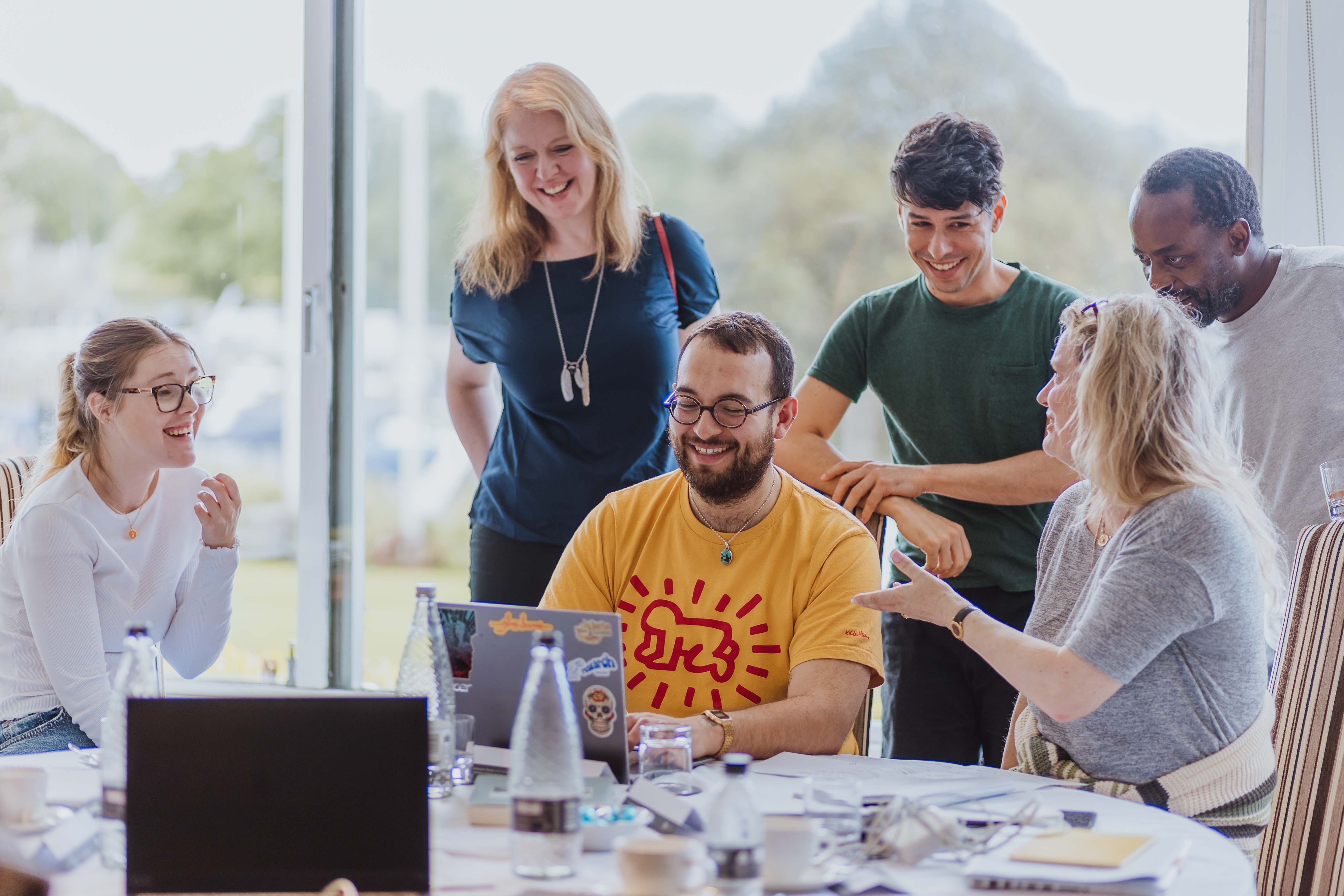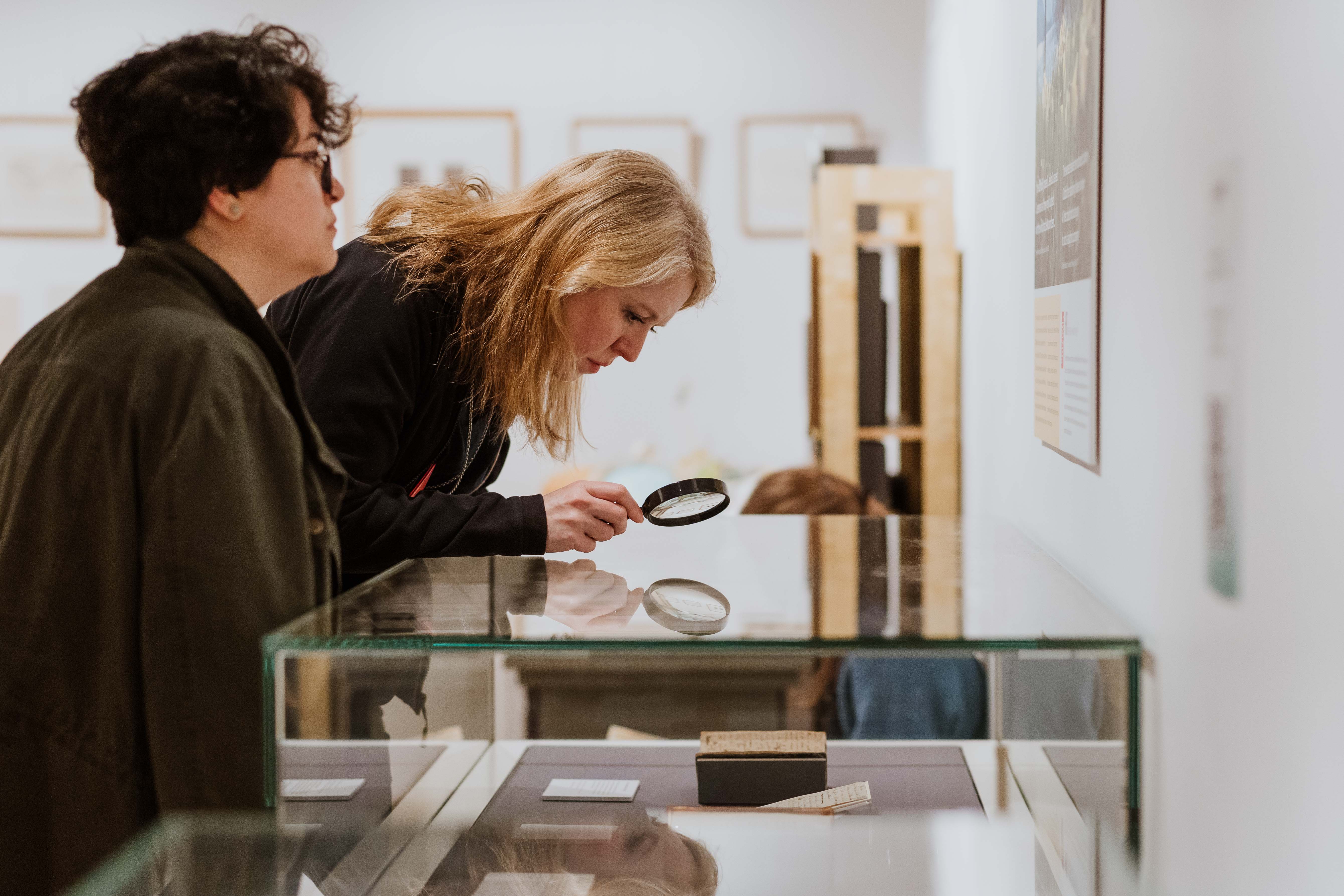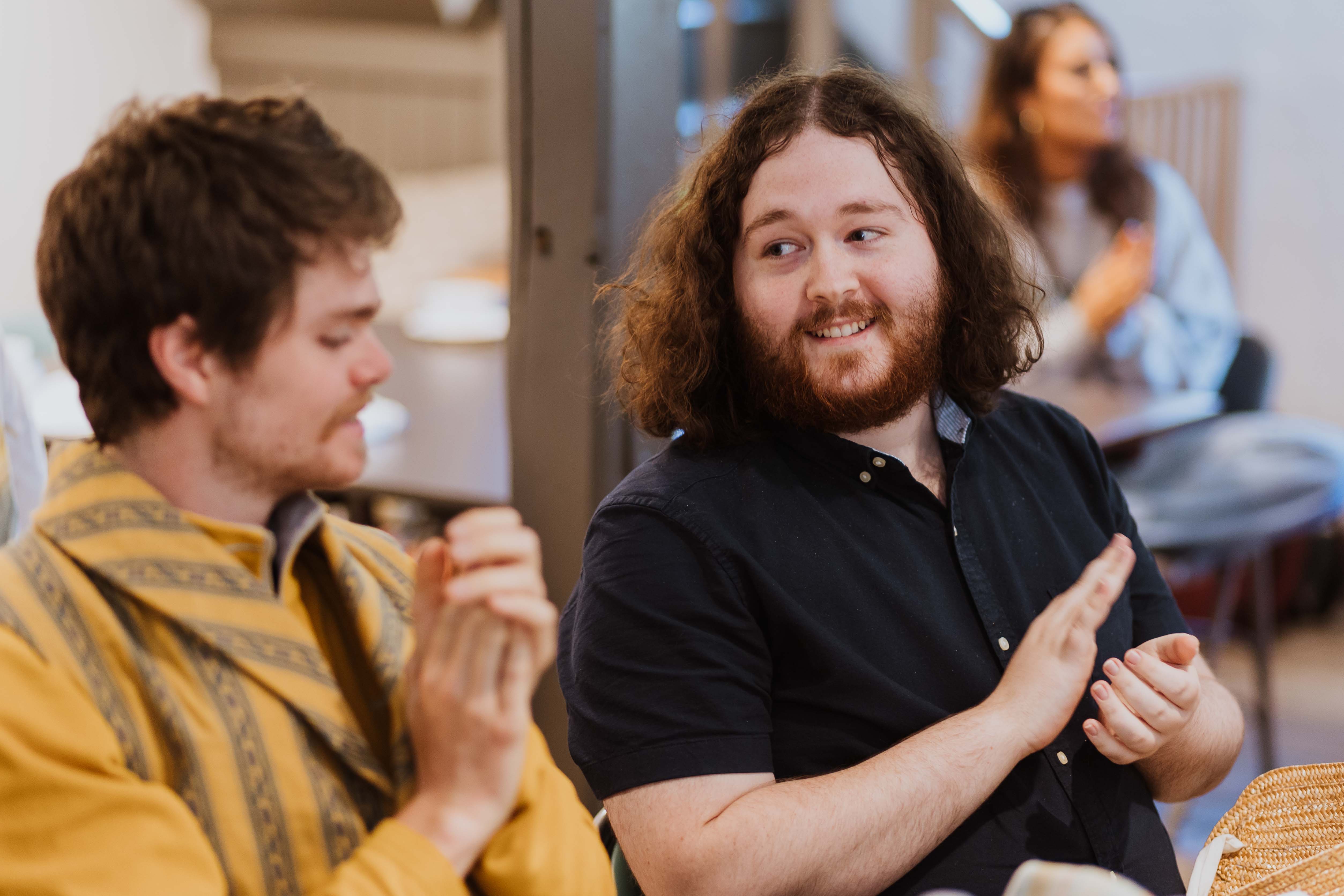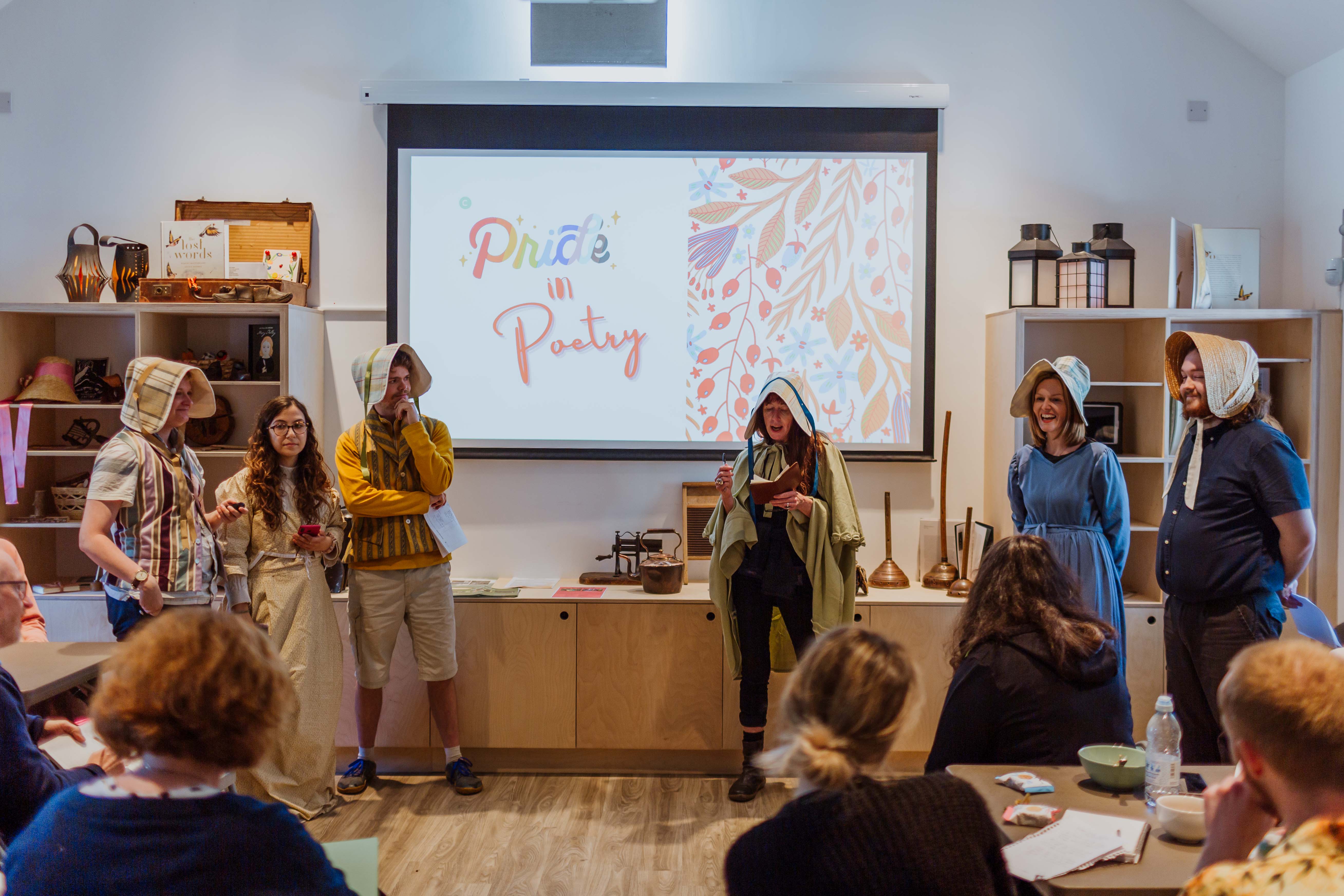Knowledge Exchange Residential
Our Nature, Community and Knowledge Exchange Residential programme creates unique opportunities to bring PhD researchers together to learn, connect and share, in collaboration with a cultural partner. The programme offers team work and individual activities, with a focus on collaborative work, co-design and engagement with cultural and heritage partners, as well as on creating an opportunity for researchers to cultivate personal resilience, well-being and building a sense of PhD community, in the context of inspiring landscapes and exceptional natural beauty.
Prof. Jerome De Groot, NWCDTP Director
Dr Rosalinda Quintieri / Programme Lead
2024 Programme
We are delighted to invite you to the third edition of the Knowledge Exchange & Wellbeing Residential, organised by the NWCDTP and REAlab, in collaboration with the National Trust, which this year will be held on the marvellous island of Anglesey, in Wales, from the 14th to the 17th of May 2024, with an introductory online training session on the 30th of April.
We will engage in training, collaboration with a local cultural partner and time in nature so that you can leave inspired and energised and apply your learning to design new collaborative Knowledge Exchange projects as part of a PhD placement, Post-Doc application or any other funded collaborative project within and beyond academia.
The programme is for PhD researchers looking for a practical learning opportunity on how to design a collaborative research/creative residency project with a non-academic organisation by engaging with a real cultural partner, which this year will be the National Trust’s Plas Newydd House and Gardens [nationaltrust.org.uk], which will challenge us to design research projects and creative residencies that engage with their enchanting mansion, gardens and art collections. You will work in teams (or individually) to go through all the stages of designing a project that can engage with the collections on a variety of themes around sustainable development and wellbeing. Researchers interested in delivering their designed residencies to Plas will be able to access funding from their DTPs following the Residential, (subject to eligibility).
The wellbeing programme will include an inspiring training session on ‘The Resilient PhD Researcher’ and a final walk on a breathtaking territory of the Island of Anglesey on the final day.
Read more on the Residential here [realabconsultancy.com]. To receive the full programme/schedule and to apply, please send an email to the Programme Director at rosalinda@realabconsultancy.com
Apply by the 3rd of April 2024, 11:59pm, UK time.
Testimonials from your Student Representatives
Being a PhD student comes with a lot of pressure, guilt and rollercoaster emotions. What we are not good at as PhD students, is being kind to ourselves, and allowing time to get headspace or to step away from our work, as we feel guilty doing this. What the Residential has provided to the attendees is a great space for learning, to get headspace, and focus on self-Wellness. In the beautiful setting of the Lake District, it allowed for the collaborative sharing of ideas with peers, an open space for sharing research and knowledge, and it offered a safe space for personal and work expression. I would recommend this Residential to every PhD student, as it is a warm, welcoming, supportive, yet also educational space to get away and out of your normal routine, to rebalance, refocus yourself and your work. I feel more energised, motivated and inspired. I finally feel part of a community (of wonderful people)! It’s been a great reset and a fantastic opportunity to connect with others in a meaningful way. Thank you so much!
Phoebe Kowalska, Manchester Metropolitan University
Like many of the researchers who attend the Residential, I started my PhD at the same time that governments around the world were putting in place a series of lockdowns and other measures aimed at controlling and reducing the spread of the coronavirus. The measures meant that for extended periods of time people couldn’t travel or gather. They also meant that for extended periods of time PhD researchers could only meet online. While there is much value in how online spaces made it possible for PhD researchers to continue their work and for people around the world to meet and share ideas, the Residential made it possible for researchers to meet in person and nurtured a sense of community. It gave those who attended the chance to talk to and learn and draw inspiration from one another. And it countered the isolation of PhD research in a way that online meetings cannot do. For me, one of the highlights of the Residential was the evening where researchers shared music, poetry, stories and song. The evening was beautiful and joyous and it showed how massively talented the people in the cohort are. I am very glad I attended and I look forward to more occasions like this.
Ambrose Musiyiwa, University of Manchester
Feedback from Researchers
This has been excellent for helping to give momentum to your PhD if perhaps you are stalled. It’s so important to build communities and I feel so much part of one now. The connections I have made will bring new perspectives to my research and enrich it.
Will Medd’s wellbeing session was very meaningful to lots of us, as helped to reflect on unhealthy practices while doing a PhD. The Silent Walk was great and I loved the Digital Geographies walk on the final day! Thanks for a fantastic programme, excellent location and the supportive environment.
I greatly appreciated the chance to work together in teams on a project and get to present it to the partner. It felt like something we would do in real life and that all our various ideas and experiences were of real benefit to the partner.
I would definitely recommend Residential to other PhD researchers as it provides an opportunity to step out of one’s routine and normal ways of thinking. Discussing one’s research with other PhDs asks for a clarity of thinking and ability to communicate in clear language. Getting different perspectives and approaches working together on a project was refreshing, while the opportunity to reflect and learn wellbeing techniques is invaluable.
